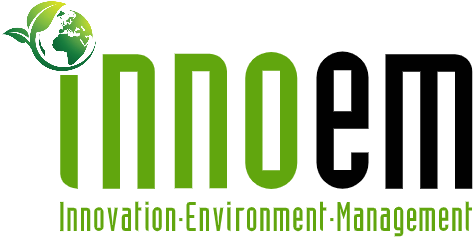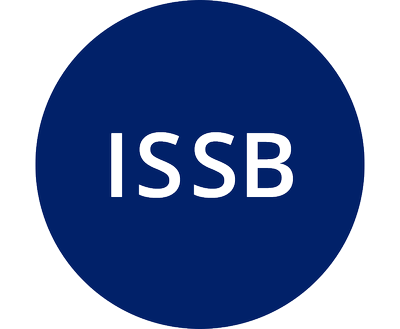The International Sustainability Standards Board (ISSB) is meeting in Montreal to advance the IFRS Sustainability Disclosure Standards ahead of their publication in 2023 and made progress on several topics relevant for the work of COP15 on Biodiversity, simultaneously taking place in Montreal, Canada.
From ESG to sustainability
To evolve from the currently fragmented ESG disclosure landscape, that lacks connectivity and has conflicting concepts, to a truly global common language of sustainability-related financial disclosures, the ISSB agreed during its October 2022 meeting that it would be beneficial to ground its standard-setting work by clearly articulating the relationship between sustainability matters and financial value creation.
In its session on 13 December 2022, the ISSB agreed how to describe sustainability and clarified that a company’s ability to deliver value for its investors is inextricably linked to the stakeholders it works with and serves, the society it operates in, and the natural resources it draws on.
The decision builds on concepts from the Integrated Reporting Framework, which helps companies articulate how they use and effect resources and relationships for creating, preserving and eroding value over time.
Sustainability will be described in the ISSB’s General Sustainability-related Disclosures Standard (S1) as the ability for a company to sustainably maintain resources and relationships with and manage its dependencies and impacts within its whole business ecosystem over the short, medium and long term. Sustainability is a condition for a company to access over time the resources and relationships needed (such as financial, human, and natural), ensuring their proper preservation, development and regeneration, to achieve its goals.
By referring to this articulation of the value creation process, a company will be better placed to explain to its investors how it is working sustainably within its business ecosystem—addressing the impacts, risks and opportunities that can affect its performance and prospects—to ultimately deliver financial value for investors.
Addressing natural ecosystems as it relates to climate
Having heard strong feedback on the connection between climate and nature, including cultivated and natural biodiversity, deforestation and water—and subsequently decided during its October meeting—the ISSB will research incremental enhancements that complement the Climate-related Disclosures Standard (S2), including relating to natural ecosystems and the human capital aspects of the climate resilience transition (just transition).
To deliver this, consistent with its approach of building upon the work of market-led initiatives grounded in current-best practice and thinking, the ISSB will consider the work of the Taskforce for Nature-related Financial Disclosure (TNFD) and other existing nature-related standards and disclosures where they relate to the information needs of investors. This will include considering the TNFD’s recent work on the intersection of climate and biodiversity disclosures in scoping the ISSB’s research on complementing its climate-related disclosures to address disclosures related to natural ecosystems.
Special Advisers on natural ecosystems and just transition work
Addressing COP15 delegates, Emmanuel Faber, Chair of the ISSB, also announced the appointment of two further Special Advisers, Karin Kemper and Geordie Hungerford, to provide strategic counsel on issues relating to natural ecosystems and just transition.
Karin Kemper was until recently Global Director for Environment, Natural Resources and Blue Economy at the World Bank. Ms Kemper will provide strategic counsel on a range of natural ecosystem topics. As part of her previous position, Ms Kemper drove the policy and strategic direction of the World Bank’s work on the economics and finance of biodiversity. This included guidance on the foundational report The Changing Wealth of Nations, quantifying the value generated by services rendered by natural ecosystems to global and regional economies, as well as the macro-economic value changes generated by affecting positively or negatively human capital development over time. Ms Kemper has published extensively on the economics of water resources management, and on natural resources and environmental management worldwide.
Geordie Hungerford is CEO of the First Nations Financial Management Board in Canada and is a Gwich’in (whose traditional territories are in the Northwest Territories and Yukon of Canada and in Alaska). Mr Hungerford will provide strategic counsel on issues important to Indigenous Peoples, which include biodiversity. Land inhabited by 480 million Indigenous people contain 80% of the world’s remaining biodiversity. Mr. Hungerford brings deep experience in finance and financial law, with experience as a securities regulatory lawyer, financial tribunal chair and CEO, management consultant, and investment banker. He has also practised Indigenous and corporate law at a Canadian law firm, driven economic development initiatives for the Gwich’in Nation and represented the Gwich’in Nation in international Arctic economic development forums.
Addressing delegates at COP15, Emmanuel Faber said:
The ISSB was created to change the current fragmented ESG disclosure landscape into a global common, consistent language of sustainability-related financial disclosures. Our clarification of the fundamental articulation between financial value creation and sustainability, borrowed from concepts in the Integrated Reporting Framework, will ground our standard-setting work and make clear that while our focus is on information for investors, financial value creation is affected by the proper preservation, development and regeneration of all the resources and relationships (including natural and human) needed for a company to achieve its goals.
Karin Kemper said:
The ISSB is bound to play a fundamental role in helping address climate change and nature loss, decreasing systemic risk for the planet, the global economy and the financial system. It will fill a public-interest gap and provide investors with practical and globally applicable parameters. I look forward to working with Emmanuel to help integrate natural ecosystem topics into the ISSB’s work and lift this important aspect into the evolving global sustainability disclosure standards. This moment is especially timely, given the expectation that COP15 will result in the post-2020 Global Biodiversity Framework, and require innovative follow-up linking biodiversity, economics and finance.
Geordie Hungerford said:
I am honoured to be appointed a Special Adviser to the ISSB Chair. With recognition under the United Nations Declaration on the Rights of Indigenous Peoples and stewardship of so much of the Earth’s biodiversity, Indigenous peoples from around the world bring an important perspective on the ISSB’s sustainability disclosure work and on factors affecting enterprise value. I look forward to working with the Chair to facilitate dialogue and inclusion. Haii’ cho/Thank you.
Source: https://www.ifrs.org/news-and-events/news/2022/12/issb-describes-the-concept-of-sustainability/

